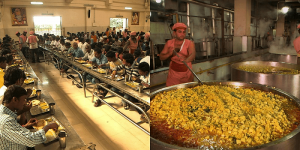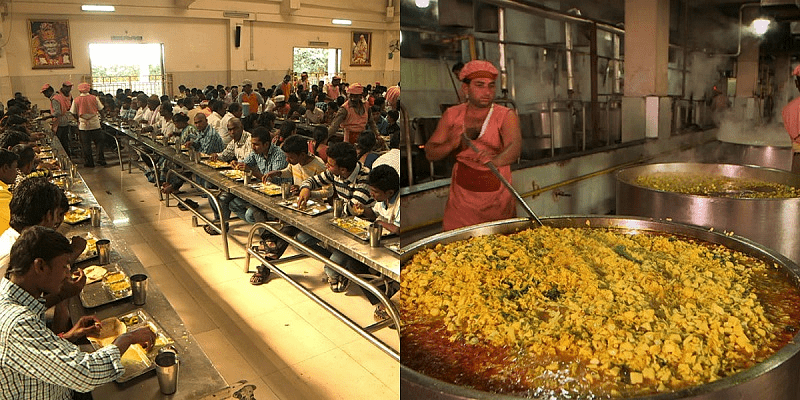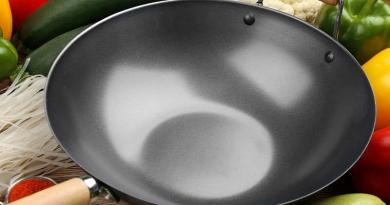Serves free food to 40K people Every Day
How Asia’s largest kitchen serves free food to 40K people every day
Ever since the dining hall or the prasadalaya was built in 2009, the place has been serving over 40,000 devotees on a daily basis. If you wondered where this kitchen is located then let’s help you soak in the glory of being an Indian, again.
The iconic Saibaba temple in Shirdi stands tall in its grace of being the holy place, quite literally. With digital signboards reading, What you have in your platter is not mere food. It’s Prasada of Shri Saibaba. Please don’t waste it and the tables being occupied at the drop of an hat and the hot meal being served to the devotees, this is a view that is worth being a part off.

The 11,550 sqmt dinning hall in the temple premises has started serving free meals to devotees since January 1. Earlier there was a nominal fee of Rs 1o. This has fetched the temple the tag of being the Asia’s largest kitchen providing free food to all, as opposed to Asia’s largest solar-energy driven kitchen.
Dr Suresh Hawre, chairman of Shri Saibaba Sansthan Trust (SSST) in the news said, Free food to all was one of the basic teachings of Saibaba. When he lived in Shirdi, he used to cook food and distribute to the people. Taking the cause of service for all, the trust has continued with this mission. Last year, this holy place won the Concentrated Solar Thermal (CST) and Solar Cooker Excellence Award from the ministry of non- conventional energy sources. The temple houses 73 solar dishes that generate 2,800 kg of steam on a daily basis said the report.
In 2001, the premises welcomed its first solar system which could cook food for 3,000 people. Owing to this success, the plan was expanded. The hot water pumped in can cook 2000kg of daal and rice and can clean all the used oily vessels. There are manual helpers as well who work in shifts. The kitchen also empowers the local farmers by buying fresh vegies from them owing to a demand of 2,000 kg of vegetables everyday.
The temple also houses two imported dish washing machines, two imported vegetable cutter machines, three vegetable and rice washing machines, and a grinding flour online mill unit along living upto the tag of a self-sustainable kitchen. The temple also follows the Food Safety and Standards Authority of India (FSSAI) standards of cooking.


